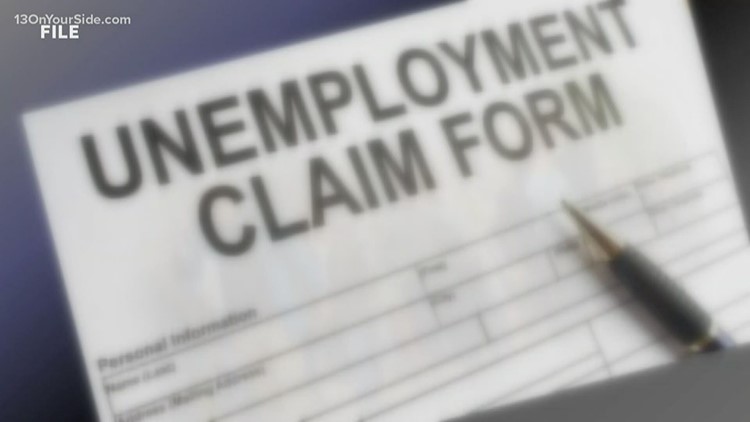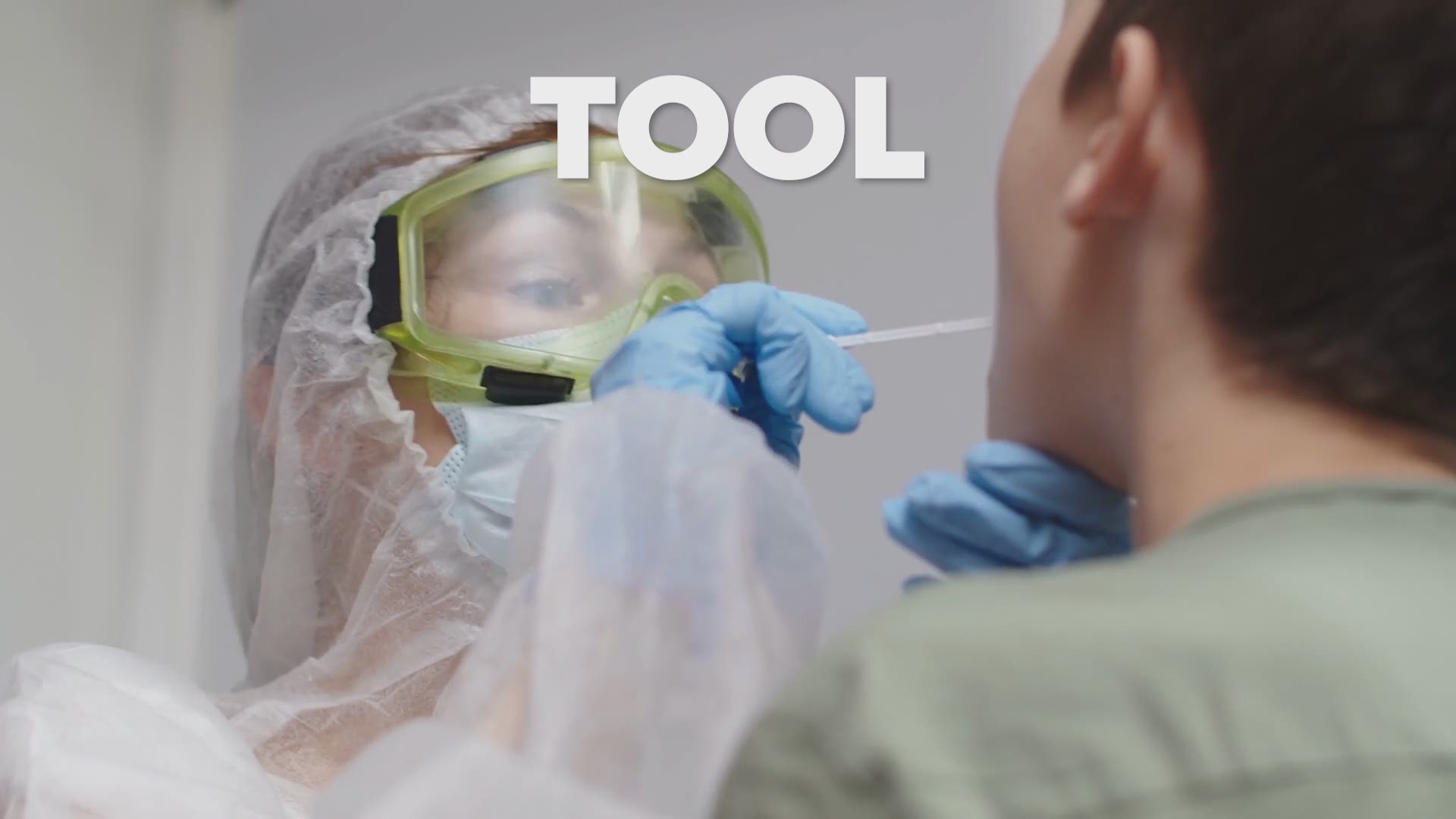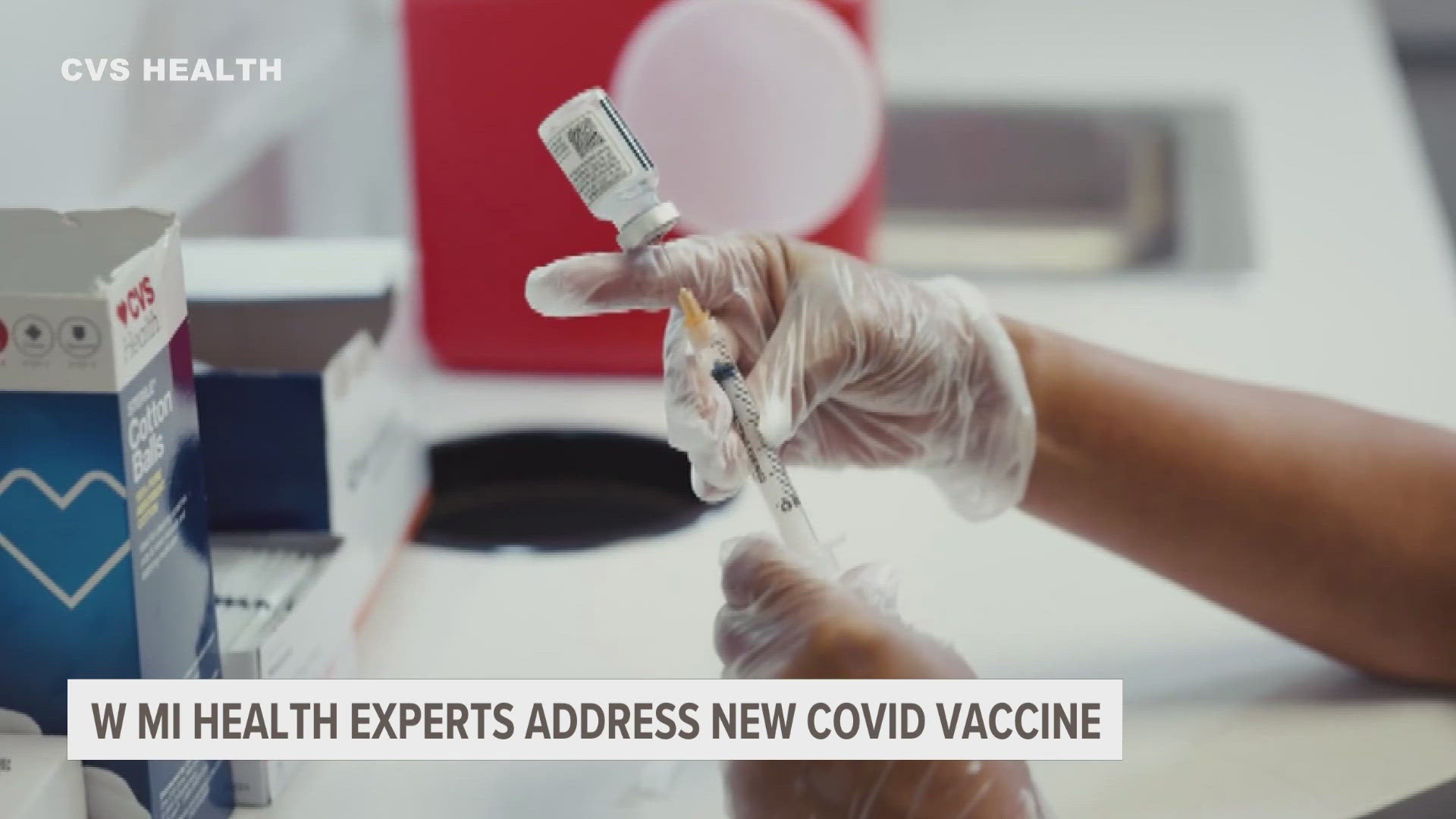GRAND RAPIDS, Mich. — All eyes continue to be on the economy as we continue to see negative economic effects of the COVID-19 pandemic. We spoke with Bankrate.com senior economic analyst Mark Hamrick about the most recent jobs report, released on July 2 and what it may indicate as the country continues to navigate this crisis.
The report indicated that U.S. unemployment fell to 11.1% and 4.8 million jobs were added in June. That's an improvement over the jobless rate of 13.3% reported in May, but it is still at a Depression-era level. It is also important to note that the numbers were collected during the second week of June, just before numerous states began to reverse or stop reopenings due to surge in coronavirus cases nationwide.
According to Hamrick, says those numbers, don't necessarily tell the whole story. "For example, the officially reported rate in the month of May was just over 13%. But, the Labor Department told us it was probably closer to slightly above 16%".
Hamrick says there is still a ways to go, and uncertainty reigns supreme. Not only can we not predict how the virus will continue to spread and make Americans sick, the uneven responses at the national, regional, and state levels make it difficult to predict how the economy will respond to restrictions that may or may not be put into place, or remain in place. "The highly elevated but declining levels of new and continuing unemployment claims suggest tens of millions of Americans are still in dire straits," he says.
He also points out that while the numbers are released monthly, it can be difficult in the weeks in between reports to see what is actually happening day-to-day when it comes to job loss. "We believe over the past few months we’ve gotten pretty close to nearly 20% of the unemployment rate. Not quite. But, there’s been some problems with measurement and this is one of the issues the labor department is working through."
Even as Michiganders go out to eat, do some shopping, and are able to visit relatives, it is important to remember, we aren't out of the woods yet, in terms of health, or the economy. "It might well be that the worst of the economic downturn is behind," Hamrick says. "But the ultimate cure for what ails the economy is linked to medical solutions such as vaccines which are progressing, but still apparently months away from widespread availability."
In the meantime, legislators, business owners, and employees must navigate the unknown, hoping to make it through to more stable economic times.
Hamrick says we have not seen an unemployment rate this high in our lifetimes. "While the financial crisis and Great Recession over a decade ago was considered the worst since the Great Depression, the recent economic shock and continuing fallout have left it in the proverbial dust in terms of horrific benchmarks."
According to Hamrick, the Federal Reserve indicated its policymakers were operating under the assumption that the unemployment rate would remain as high as just under 10% by the end of the year.
Going forward, it seems apparent that more federal aid will be needed to help people across the country continue paying their bills, even if they have lost their job due to the pandemic. "It does appear that members of Congress, the Democrats and Republicans and the White House are working toward some sort of agreement to continue relief," Hamrick says. "Just what that looks like exactly isn’t quite certain, but it doesn’t appear that is going to be coming down in the next few days."
Hamrick posits that the urgency with which the government responded at the beginning of the crisis has eroded and become mired in partisan gridlock. "Hanging in the balance are millions of financially strapped Americans who sent them to Washington to represent their best interests."
Of course, we know that the businesses most visibly affected are those that involve large groups of people gathering. Businesses like restaurants and bars, theatres, hotels, and other hospitality and leisure sector options. "We do believe that this is going to continue to be a troubled time for bars and restaurants," Hamrick says. "For hotels, for the airlines, really, any business that is reliant on the public flocking to those operations. Whether it’s people we are local or people who are traveling from elsewhere to visit them."
Strangely, while more than half of Americans surveyed say they regret their previous saving habits for retirement and emergencies, a different Bankrate.com survey indicates that fewer people are losing sleep over their financial situation right now. You can see more results from Bankrate.com's surveys, as they relate to the COVID-19 pandemic here.
There is something else of note in regards to the newest joblessness report. Unemployment right now is affecting certain groups more. Jobless rates for Blacks (16.8%), Hispanics (17.6%), adult women (13.9%) and teenagers (29.9%) were higher compared to adult men (11.6%) and Whites (12.4%).
When asked about the difference indicated, Hamrick had this to say, "One of the conclusions is that this economic downturn has exacerbated so called income inequality, which has been a force in the American and global economy for many years now."
Hamrick continued, saying "this means that at the end of the day, people who are the lower end of the income spectrum are suffering more than others and of course we know for example, if we talk about leisure and hospitality, and retail, those are not necessarily high paying jobs we’re talking about there. And we know coming into this crisis, most Americans are living paycheck to paycheck, so what happens when Americans lose their paychecks without much of a social safety net?"
Hamrick also pointed out that the economy does have an impact on voting and the government. "Ultimately, the performance of the U.S. economy and how it affects individuals is fodder for the presidential election, which is now just a number of months away."
However, he says this time may be a little different because there are other issues that are top of mind as well that may end up taking priority.
RELATED VIDEO:
MORE on 13 ON YOUR SIDE:
- 'Desperation science' slows the hunt for coronavirus drugs
- McConnell eyes coronavirus aid as evictions, benefit cuts loom
- Next coronavirus stimulus may have $40,000 income cap
- President Trump vows to pressure governors to reopen schools this fall
- Dr. Fauci says wear masks to limit surging cases
- Michigan AG suing U.S. Education Secretary Betsy DeVos over COVID-19 relief funding for private schools
►Make it easy to keep up to date with more stories like this. Download the 13 ON YOUR SIDE app now.
Have a news tip? Email news@13onyourside.com, visit our Facebook page or Twitter.




